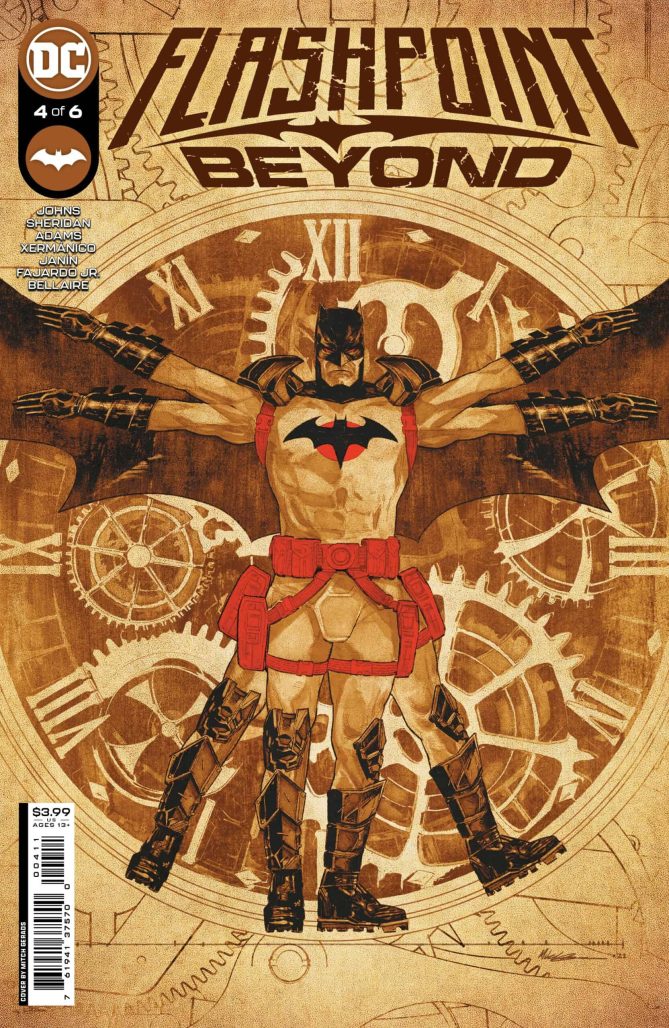
At SDCC, The Beat had the pleasure to sit down with writers Jeremy Adams and Tim Sheridan and chat about some of the recent developments thus far in the miniseries and what’s to come.
Taimur Dar: I’ve really been impressed by how cohesive and seamless Flashpoint Beyond comes together even with multiple writers. Can you describe the collaboration process?
Tim Sheridan: The way comics are created affords us an opportunity to get it right. We get to break the story together, script it, share that with each other and make sure we get the voices right. If we make mistakes, and we’ve done that, through the process as the pages come back we get to tweak things. Geoff has been a great guy for us in terms of getting the Flashpoint voice. We’re just happy tourists and interlopers getting to help out.
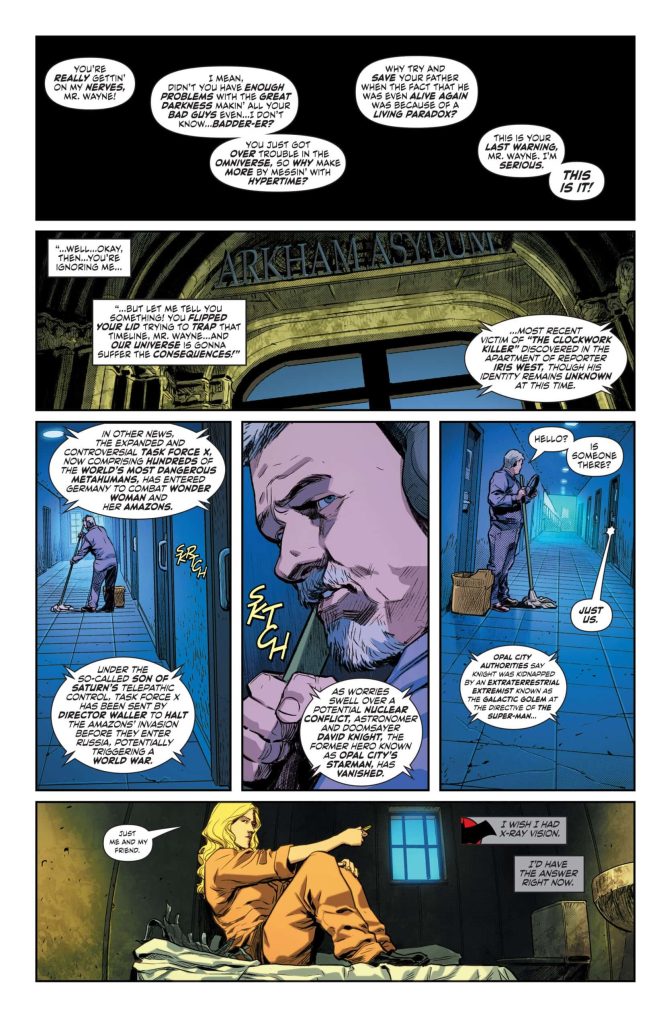
Sheridan: I don’t even remember! This is what’s so funny. The three of us sit in a room and I could not tell you whose ideas are whose at a certain point. There are a couple of stinkers that I know were Jeremy’s.
Jeremy Adams: Absolutely.
[Laughter]
Sheridan: Obviously The Long Halloween was on the very top of my mind. Maybe Geoff just watched the movie!
Adams: He has such an encyclopedic knowledge of the DC Universe anyway. I think there was a little bit of us trying to outdo each other to see what corners of the DC Universe we could scratch and put into Flashpoint Beyond.
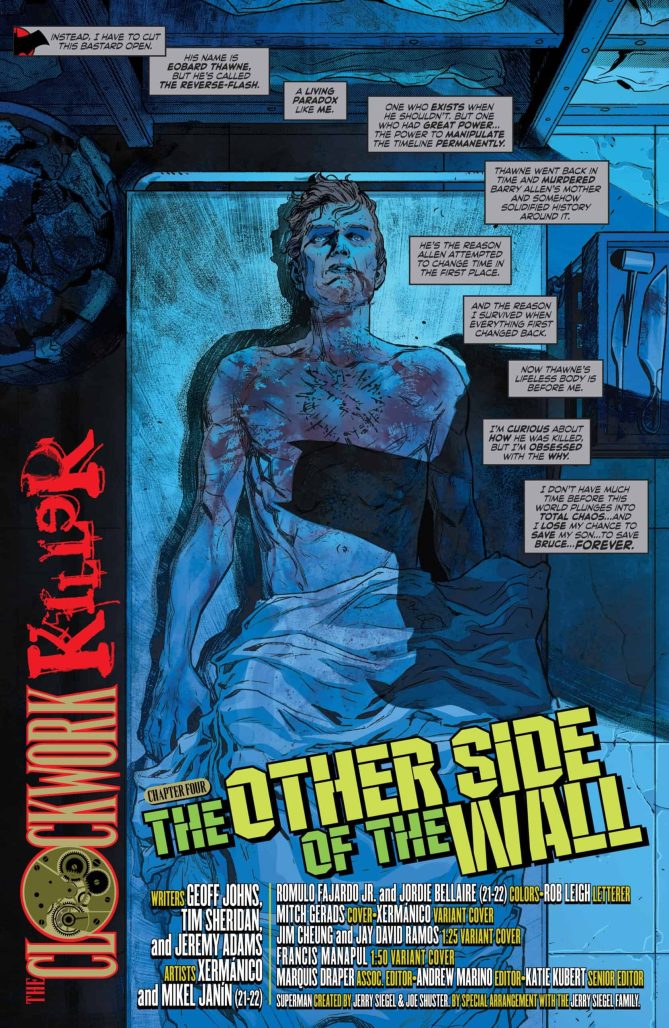
Adams: One thing I love about our tenure in this universe is the fact that there are so many things that would seem too easy to do to these characters. I say easy like we could have just made Superman evil. We had a conscious decision that we’ve seen that version, like Red Son. People think we’re going to zig, we’re going to zag. He’s still hopeful even with all this other stuff. Even having threads that aren’t dissimilar to what we’ve seen in the DC Universe makes it different because you were expecting it to be different. Or it’s askew just slightly.
Sheridan: I think that is the hallmark of a great Elseworlds or Flashpoint story— the surprise factor. We’ve already seen some of the 180 twists on characters. It really says something particularly about Superman when we see him veering back to being the same Superman that we all know. Some things are just a constant throughout Hypertime and the multiverse.
Dar: Speaking of Superman, the most recent issue revealed a new dark truth that baby Kal-El was sent to Earth in order to prepare the planet to be conquered by Krypton. It definitely has shades of the Viltrumites in Invincible, which is itself a different take on the Superman mythos. Whether or not Invincible was an influence, I’m curious how you came up with this Kryptonian plot point?
Adams: It’s like jazz, variations on a theme. We thought, “What if Krypton really is going to explode but instead of sending one kid away, they send all.” It’s a classic invasion trope.
Sheridan: For us we thought it was a classic sci-fi thing. I didn’t even think about Invincible.
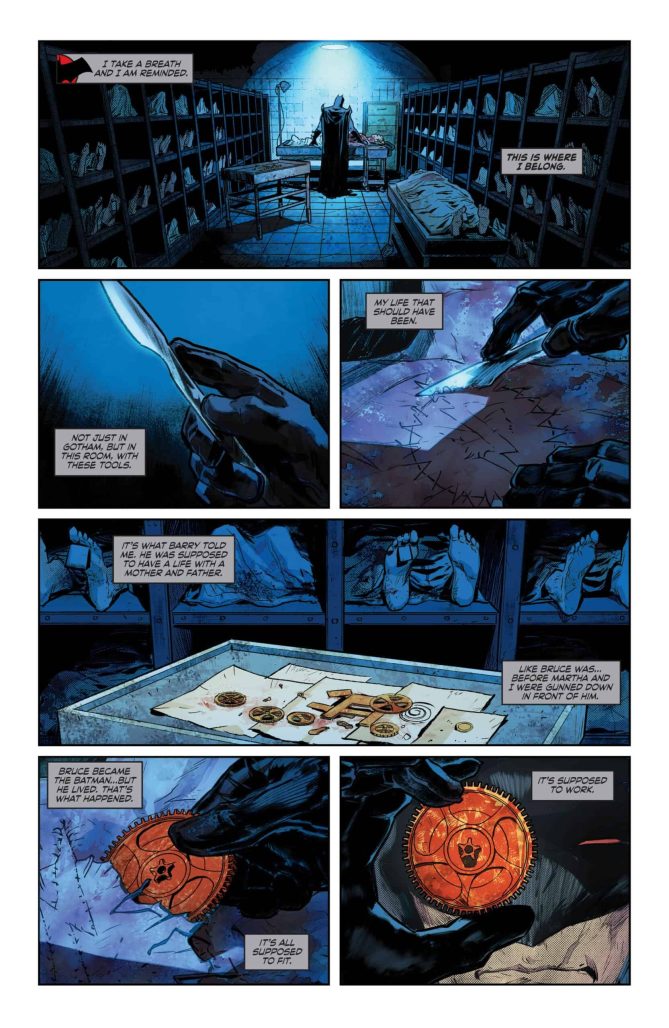
Sheridan: For our purposes, all of these huge things are happening and still Thomas says, “That doesn’t matter to me. The world ending? I don’t care. This is the only thing I’m focused on.”
Adams: That’s why too when Thomas starts to teeter on the edge of just killing people to get what he wants and Superman shows up and says, “Everything matters,” it’s slowing him down for a moment.
Dar: Interesting enough, that’s the exact premise posed by the film Everything Everywhere All at Once. It’s another story about the multiverse which is a familiar concept but it is definitely in the zeitgeist right now. I’m a huge Dwayne McDuffie fan and love his Justice League: Crisis on Two Earths animated film which also toys with the idea that “nothing matters,” through the character Owlman. I’m curious how this theme plays out through Flashpoint Beyond?
Adams: I think you’re right. We’re dealing with so many properties right now that are dealing with the multiverse that it can become burdensome and you do feel like nothing matters. If there are all these different versions then you just don’t care.
Sheridan: But that’s why Hypertime is so interesting.
Adams: Tell me more! [Laughs]
Sheridan: Because it’s not really the multiverse. It’s something else. In many ways it answers the question, “Does nothing matter or does everything matter?”
Adams: Like you just said, everybody is telling stories within the context of the multiverse but we’re also trying to say that maybe it’s something else and maybe it means something else too. It’s just a different angle.
Sheridan: I think the old saying is, “If everything matters then nothing matters.” But I think what we’re talking about then is just a matter of perspective. It’s a matter of hope versus pessimism and I think that is essential to Thomas’ story. I think that’s why see Superman come in always representing hope. That may end up shaping Thomas’ actions going forward. We’ll see how it plays out.
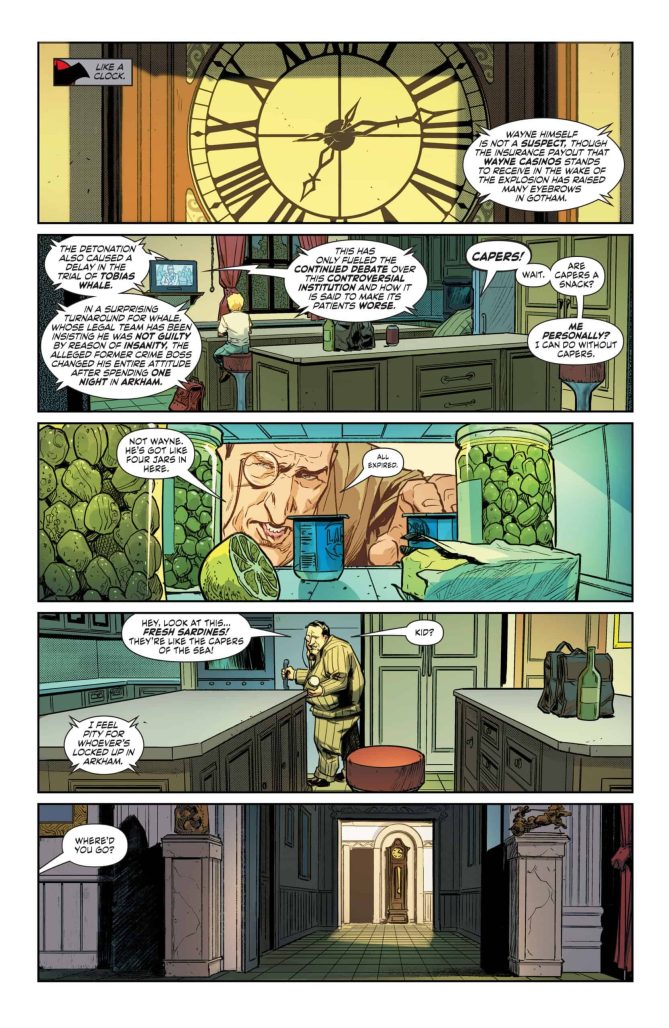
Adams: Oh, did we?
Sheridan: The Boy Terror!
[Laughter]
Dar: Would love to hear what you can tease like if we’ll be seeing Dexter sport his own costume?
Adams: Issue #4 some of those questions will be answered.
Sheridan: Is a Robin a Robin without some sort of costume? Check out issue #4! The thing to really be tracking with Dexter is what he wants to do and why. In many ways it parallels Thomas’ story.
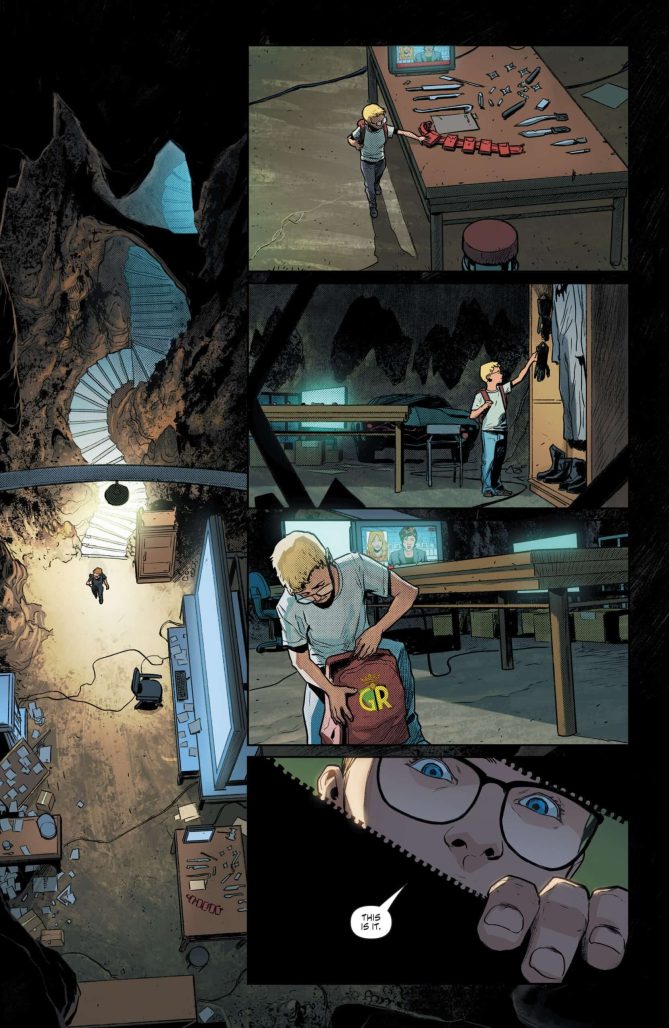
Sheridan: There’s interest on my part to keep exploring the universe!
Adams: My life is that country music adage, “You’ve got the money, honey, I’ve got the time!”
[Laughter]
Sheridan: Exactly! It’s just a matter if fans ask for it. If people are looking for more stories like this in this part of the DC canon, I’d be first in line.
Adams: We’ve had this conversation with animation all the time. We want other things besides Batman then buy the Green Lantern. Really, the margin between another version of this or more isn’t as big as you think it is, especially in animation. But we have to see that there is market for it [and] that people want that.
Sheridan: It’s such an interesting thing. I don’t think fans really understand how much power they have in terms of the number of comic books that can decide the future of how a story can play out. You can really vote with your wallet with comics in a way that you can see the effect of your vote.
Adams: Every comic is Florida in every election!
Sheridan: So check out Flashpoint Beyond and not on YouTube!
Flashpoint Beyond #4 is available in stores and digitally today.
Miss any of The Beat’s earlier SDCC ’22 Coverage? Find it all here!


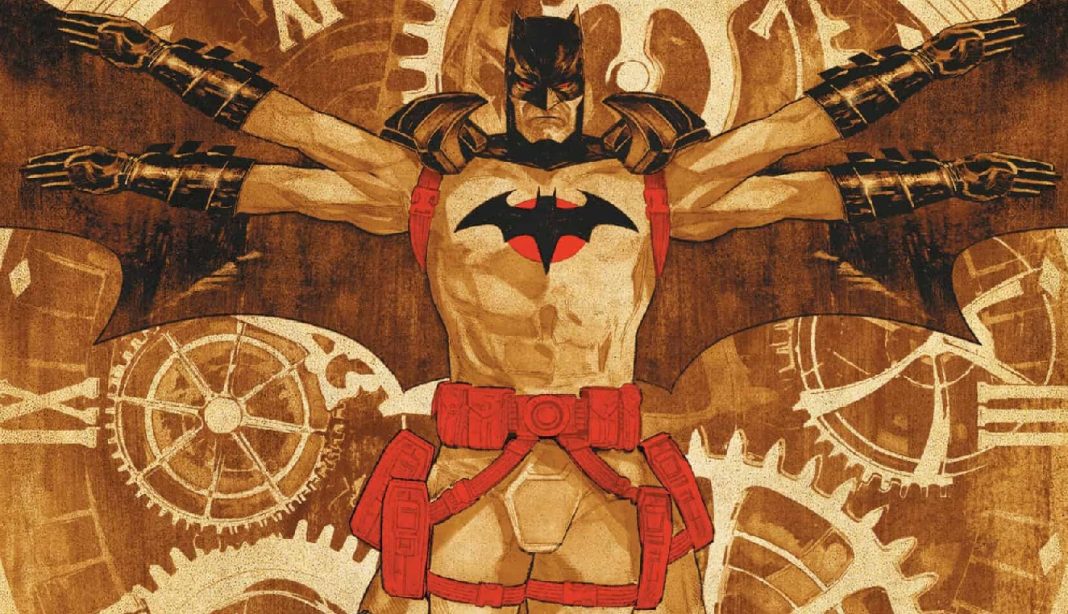
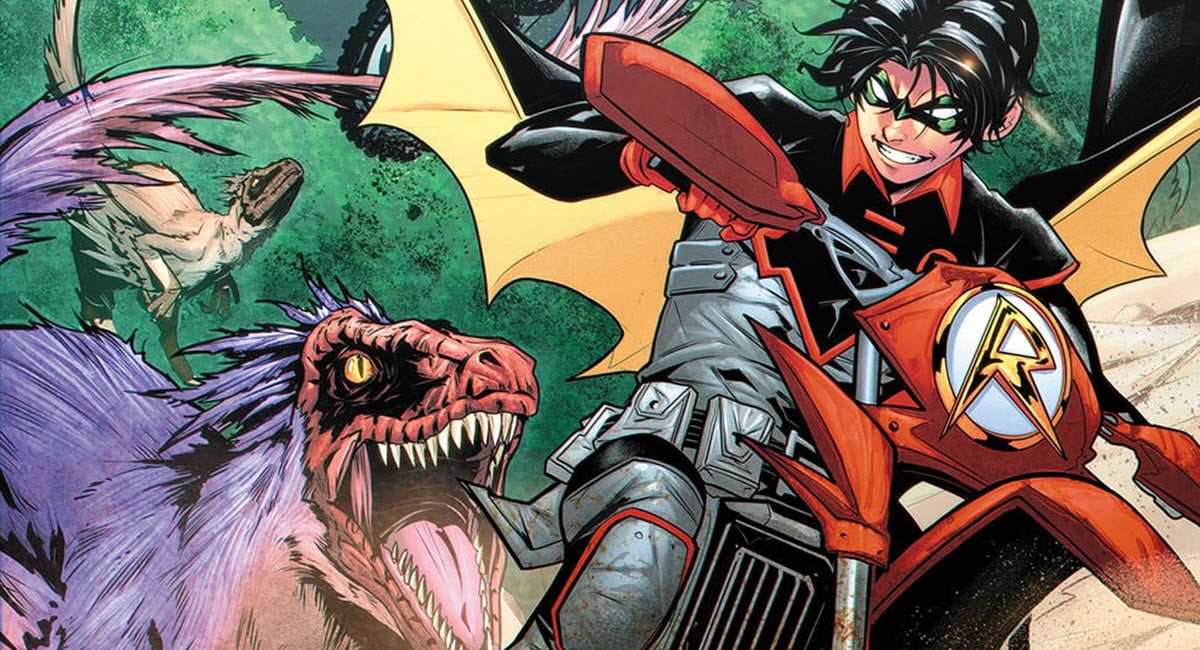
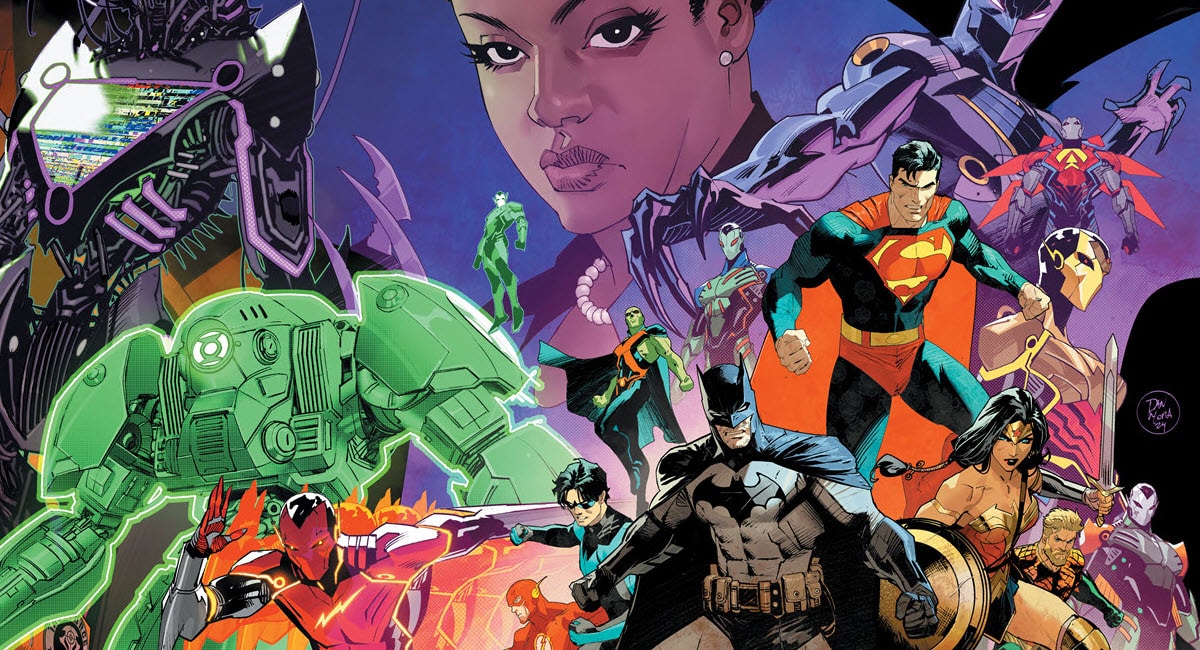
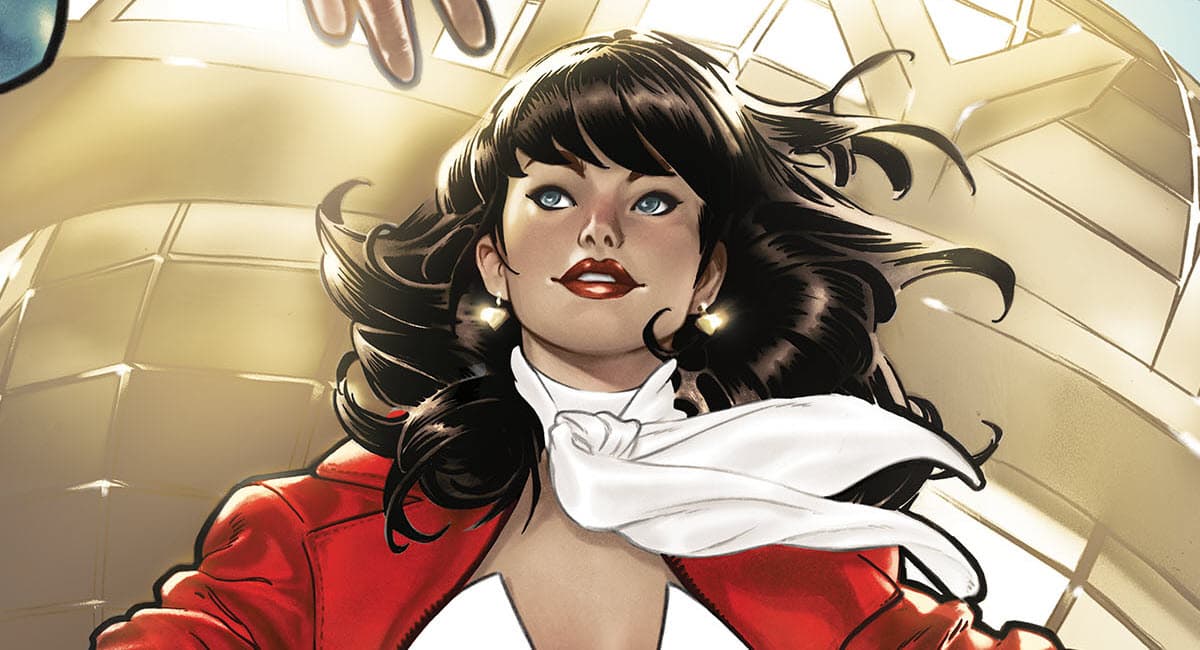


This is where we’re at, folks. There needs to be an interview with two creators just to explain “what counts” with a comic book story. Goodbye.
Comments are closed.